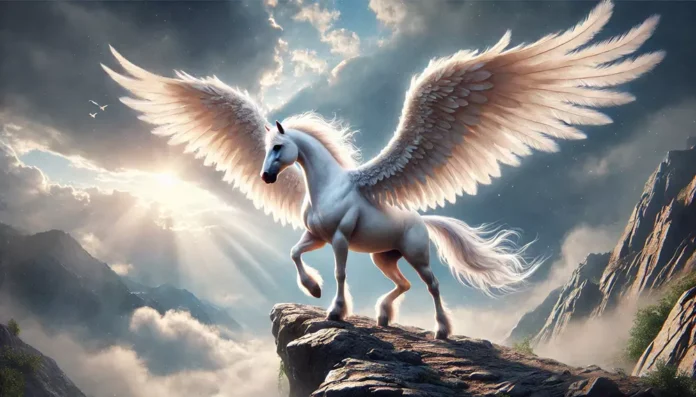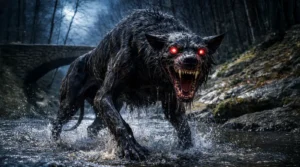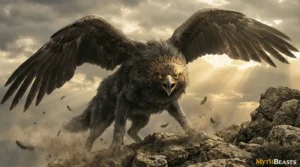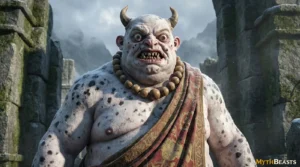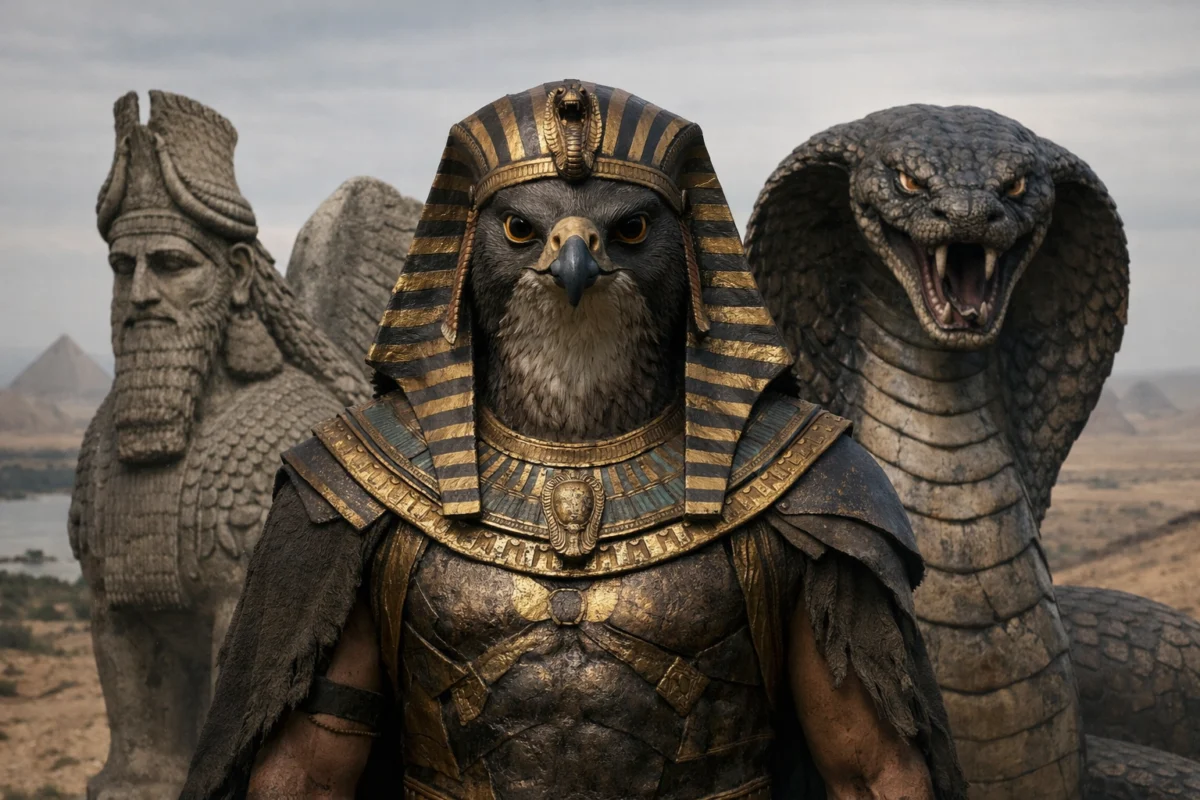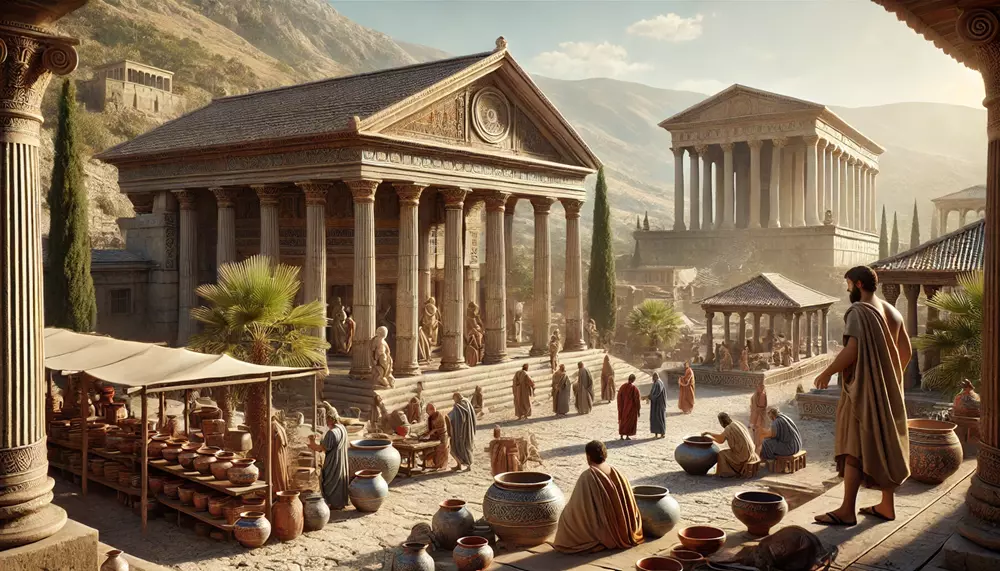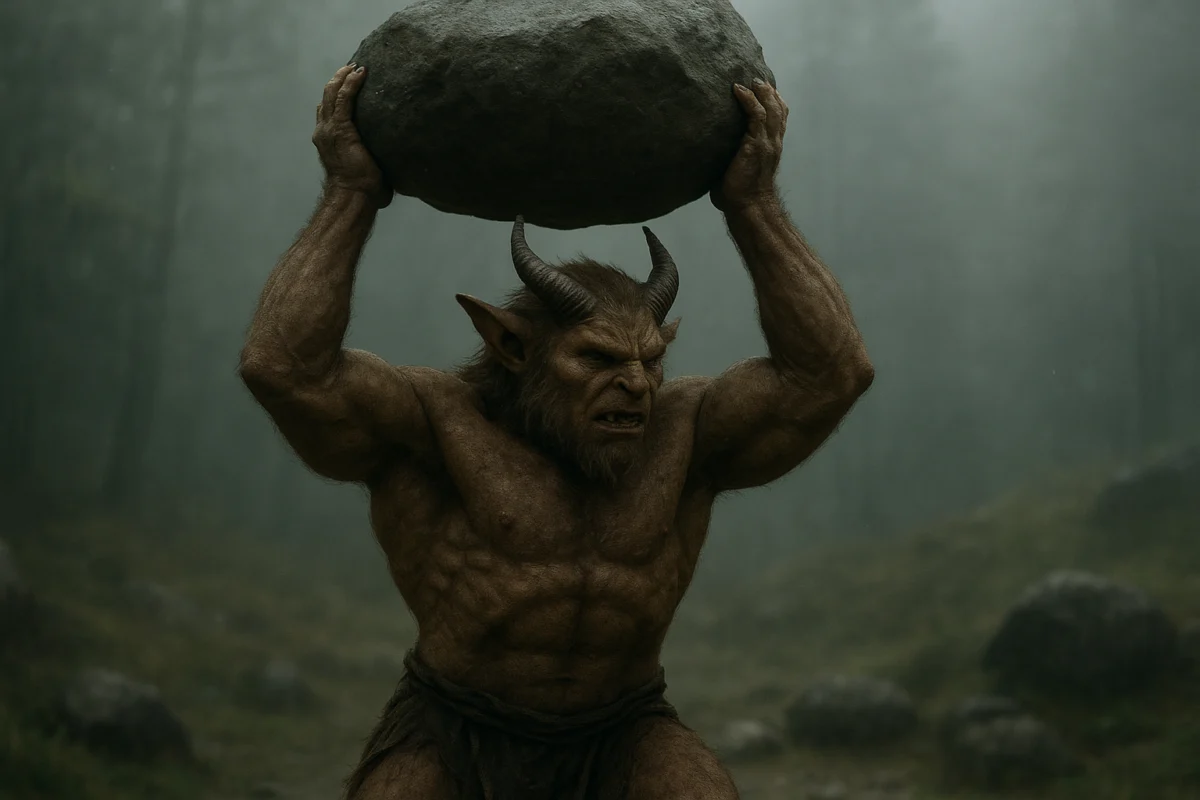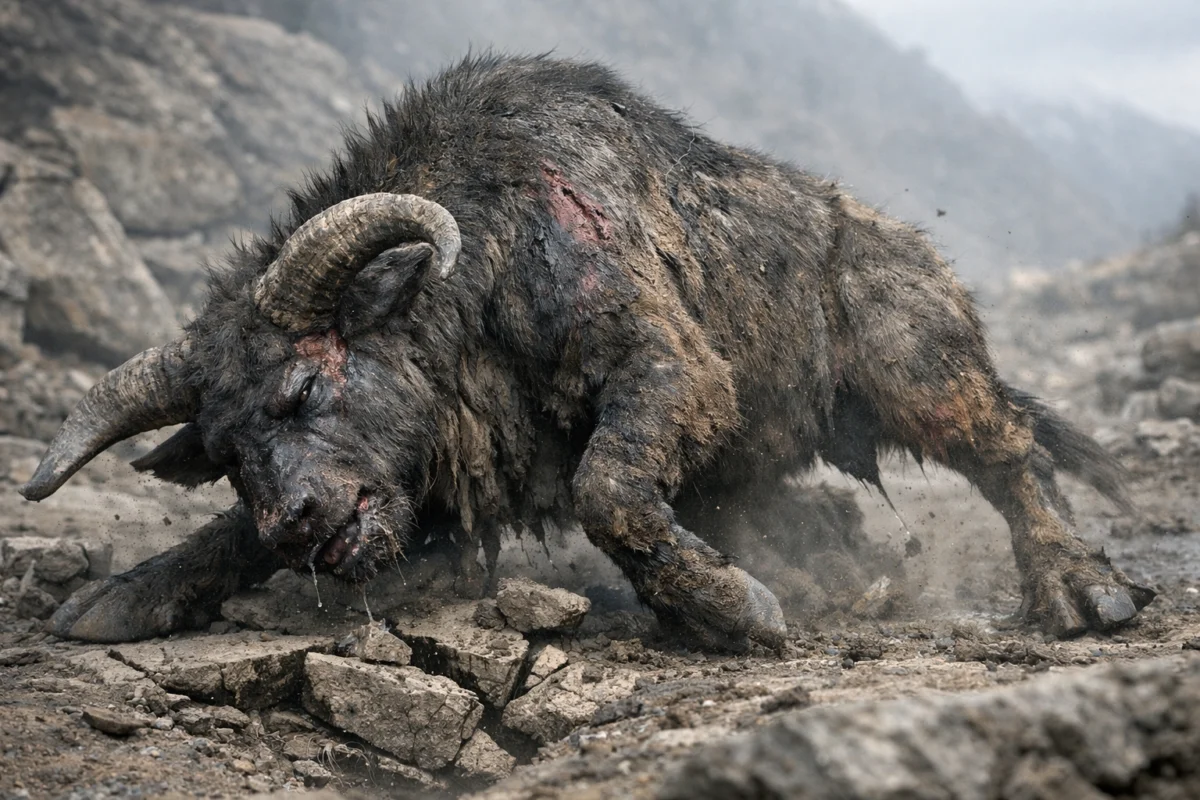Introduction
Pegasus, the majestic winged horse of Greek mythology, symbolizes freedom, inspiration, and divine grace. Born from the blood of Medusa, Pegasus’ incredible story intertwines with gods and heroes alike.
Revered for his beauty and power, Pegasus has since become a timeless symbol of transcendence and the pursuit of extraordinary achievements.
History/Origin
Pegasus was born from a dramatic and mythical moment: when the hero Perseus beheaded the Gorgon Medusa, Pegasus sprang forth from her blood. The winged horse wasn’t just a symbol of divine birth but represented freedom and victory over darkness.
Pegasus quickly became a favored companion of the gods, flying up to Olympus where he found favor with Zeus.
In ancient Greek art and poetry, Pegasus is often depicted as a magnificent white horse with wings, a creature embodying purity and the celestial. His story, recorded by Hesiod and later expanded upon by Ovid, positioned him as a bridge between the mortal realm and the divine.
Name Meaning
The name “Pegasus” is believed to come from the Greek word “pegai,” meaning “springs” or “waters.” This connection to water symbolizes life, renewal, and inspiration.
Pegasus’ association with springs ties back to his role as the creator of the Hippocrene, a sacred spring on Mount Helicon that emerged when Pegasus struck the ground with his hooves. This spring became a source of poetic inspiration, connecting Pegasus to creativity and artistic pursuits.
“And from Pegasus’ step, the waters flowed, granting the gift of words to poets and wisdom to seekers.” – Hesiod’s Theogony
Background Story
Pegasus’ journey from Medusa’s blood to becoming a symbol of divine power includes his bond with the hero Bellerophon. Tasked with slaying the fire-breathing Chimera, Bellerophon sought Pegasus as his steed.
With the goddess Athena’s help, he managed to tame Pegasus, and together, they defeated the monstrous Chimera, a victory that became legendary.
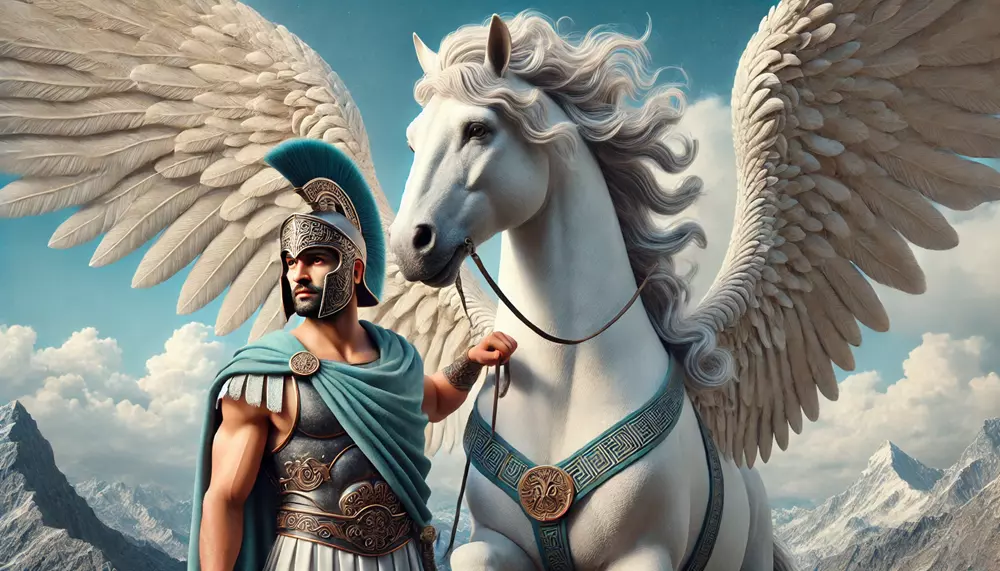
Yet, pride overtook Bellerophon, who attempted to ride Pegasus to Olympus, seeking godhood. Displeased by his hubris, Zeus sent a gadfly to sting Pegasus, throwing Bellerophon back to earth.
Pegasus, however, continued to soar, joining the gods as a symbol of loyalty, courage, and divine favor.
Cultural Impact
Pegasus’ image was more than a myth, it became an emblem across cultures. Ancient Greeks saw him as a symbol of victory, his wings representing the divine gift of speed and liberation from earthly bounds.
Pegasus was frequently depicted on coins, pottery, and mosaics, a reminder of his heroic legacy.
In Rome, Pegasus evolved as a figure of honor and power, his association with the muses and the arts enduring as a symbol of creativity. Pegasus continued to appear in art, especially during the Renaissance, where he became an allegory for poetic inspiration and artistic genius.
“To capture Pegasus is to harness the divine spark of creation itself.” – Italian Renaissance Saying
Similar Beasts
Pegasus isn’t the only winged horse in mythology, though he’s certainly the most well-known. Other mythological traditions include the Tulpar from Turkic folklore, a flying horse that symbolizes freedom and strength.
In Hindu mythology, Uchchaihshravas, a seven-headed horse, serves as the steed of the god Indra, representing power and celestial grace.
These creatures, though culturally distinct, share Pegasus’ attributes of strength, freedom, and divine connection. Their winged forms transcend earthly limitations, embodying the ideals of spiritual or physical liberation across various cultures.
Religion/Ritual
Though Pegasus wasn’t worshiped as a deity, he was revered within the context of Greek religious traditions. His association with the Muses led to the creation of shrines and poetic sanctuaries near springs, particularly at the Hippocrene spring on Mount Helicon.
Poets and artists would visit these sites to seek inspiration, believing the waters held divine properties imparted by Pegasus.
Rituals often included sacrifices and offerings near these springs, with Pegasus acting as a conduit between mortal creativity and divine influence. In this way, he was less a god and more a guardian spirit of artistic pursuits, a figure cherished by poets and storytellers.
Scientific or Rational Explanations
While Pegasus is entirely mythical, the Greeks’ love for horses and fascination with the divine likely fueled the creature’s origin story. Horses were essential in ancient Greek society, both for battle and transport, and their powerful, graceful forms were easily idealized into a creature like Pegasus.
Additionally, some suggest that birds’ flight and grace might have inspired the winged-horse image, merging speed with ethereal beauty.
“The winged horse embodies our desire to rise above earthly limitations, blending strength and grace in ways both mortal and immortal.” – Greek Historian
Modern Cultural References
Pegasus’ legend has continued to inspire countless modern stories, symbols, and brands, cementing his place in contemporary culture. Here are a few iconic examples:
Disney’s Hercules: In this animated classic, Pegasus is Hercules’ loyal, winged steed, adding a family-friendly, adventurous twist to the myth.
Percy Jackson Series: Pegasus appears as a trusted mode of transport for demigods, tying Greek mythology into a modern, action-packed storyline.
My Little Pony: In this popular franchise, Pegasi are featured as a race of flying ponies, inspired by the legend of Pegasus and made accessible for children.
Yu-Gi-Oh!: Pegasus is represented in the form of powerful cards, symbolizing agility, strength, and connection to ancient forces.
Mobil Oil’s Pegasus Logo: The winged horse symbol is used by Mobil as a representation of freedom, energy, and speed, qualities that reflect both the mythology and modern associations of Pegasus.
Dungeons & Dragons: Pegasus is a popular creature, symbolizing goodness and purity, available for players as magical companions or rare steeds.
Final Fantasy Series: Pegasus appears in various forms as a summonable creature, embodying the ideals of power and grace.
Pokemon (Rapidash): Though not explicitly Pegasus, Rapidash, with its fiery mane and horse form, takes inspiration from mythical horses, embodying speed and freedom.
Assassin’s Creed Odyssey: Pegasus is available as a mount, merging ancient myth with the game’s historical fiction.
Each of these examples showcases how Pegasus continues to soar through modern imagination, a figure that embodies both power and creativity.
Conclusion
Pegasus is more than just a mythical creature; he’s a timeless symbol of inspiration, divine favor, and the boundless pursuit of greatness. His story of rising from Medusa’s blood and reaching Olympus symbolizes hope, strength, and the courage to transcend earthly limits.
Pegasus’ legacy lives on not only in art and literature but in modern brands, films, and games, reminding us that some symbols never lose their power.
In the end, Pegasus represents the very essence of myth, stories that lift us up, challenge us to be greater, and inspire us to dream beyond what’s possible. His wings will continue to carry him through the realms of art, culture, and imagination, a reminder of the extraordinary in a world often bound by the ordinary.

